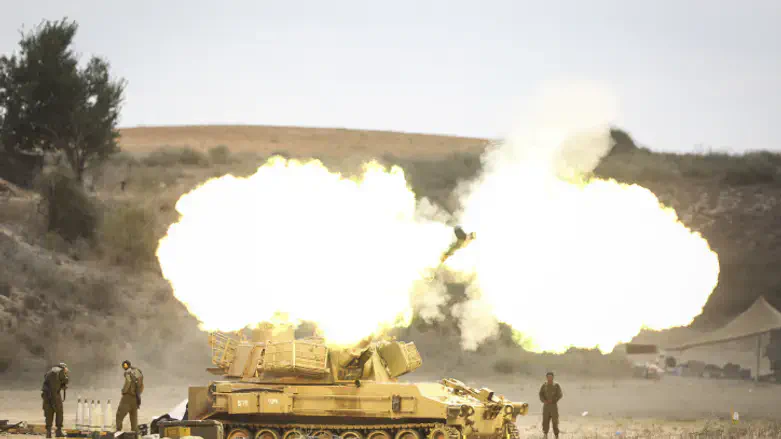
Since its establishment on May 26, 1948, by Prime Minister David Ben-Gurion, the Israel Defense Forces (IDF) have served as the backbone of Israel’s national security. Rooted in the legacy of the Haganah, Irgun, and Lehi underground militias, the IDF has come to symbolize Israel’s unwavering commitment to protecting its people. The name "Defense" reflects a foundational moral principle: restraint, necessity, and justified action.
But as Israel confronts increasingly complex and existential threats, from state actors and non-state terrorist organizations driven by genocidal ideologies, it is perhaps time to ask a bold and strategic question:
Should Israel create a distinct offensive military branch, the Israel Attack Forces (IAF)?
Since 1948, Israel has fought not only to survive but to proactively secure its future in one of the world’s most hostile regions. From the War of Independence to the current war in Gaza, Israel has been repeatedly forced into conflicts, not by choice, but by necessity.
While the IDF has effectively carried out both defensive and offensive operations over the decades, its core identity remains one of defense. However, in today’s asymmetric and psychological warfare environment, Israel needs more than defense, it needs to project strength and deterrence backed by clearly defined offensive capabilities.
Establishing the Israel Attack Forces as a specialized offensive arm, operating alongside the IDF, would not only improve operational effectiveness and psychological resilience, but also strengthen Israel’s long-term deterrence. A dedicated Israel Attack Forces would send a different message, one of strategic clarity, strength, and readiness. It would underscore Israel’s ability and willingness to act preemptively when necessary to neutralize threats and project strength.
With distinct branches, IDF for defense and IAF for offense, soldiers would train and serve with a clear understanding of their role, whether it is to protect or to engage, reducing the moral and operational ambiguity often experienced in modern combat zones. Offensive units would focus on maneuver warfare, psychological dominance, and preemptive strategy, while defensive units could specialize in civilian protection, infrastructure security, and crisis response. Units aligned around a singular purpose (defense or offense) would very likely foster stronger bonds, greater morale, and sharper operational focus.
An official IAF branch would also enhance strategic decision-making through clear command structures and mission assignments, resource allocation, ensuring offensive tools are built and maintained for forward-facing threats, and national messaging, affirming to allies and enemies alike that Israel does not rely solely on reactive defense.
Naturally, it is likely that these two forces would coordinate and at times operate jointly. But the mere presence of a formalized IAF could fundamentally shift Israel’s strategic posture and psychological edge domestically and internationally. The existence of a dedicated IAF would most likely have a powerful threefold effect, serving to boost soldier morale, reassure the civilian population, and deliver a clear message to adversaries: Israel is not only prepared to defend, it is fully prepared to strike.
Global precedent already exists for this type of structural division, with many modern militaries operating clear offensive and defensive components, even if not always labeled explicitly. In the UK, the 7th Air Defence Group focuses on protection, while the SAS and Royal Marines serve as elite offensive units. France’s Foreign Legion and Marine Commandos carry out offensive operations, while strategic air and missile defense are managed within its Air and Space Force. Germany maintains defensive capabilities like Patriot missile batteries alongside offensive special forces such as the KSK. And, in the cyber domain, the United States Cyber Command distinctly separates Offensive Cyber Operations (OCO) from Defensive Cyber Operations (DCO), underscoring the efficiency and clarity of functional separation.
There is no doubt that the IDF will always be the people’s army, grounded in national service, duty, and defense of home. But as threats evolve, so too must Israel’s military structure and mindset. Creating the IAF is certainly not a rejection of the IDF’s proud legacy. It is an evolution of doctrine, built on the understanding that peace is not maintained by defense alone, but by initiative, power, and the willingness to act decisively. Israel’s adversaries are not waiting for permission to attack. Why should Israel wait to respond?
In a world of evolving, asymmetric, and ideological threats, Israel must lead with clarity, strength, and strategic innovation. Defense will always be vital, but it seems that the time has come for proactive power as an equal pillar of the nation’s security doctrine. It seems that the time has come for the IAF.
Oshy Ellman is an Israeli-born Olah from the United Kingdom. She has over two decades of experience in international relations and communications and is an active participant in the Olim community.